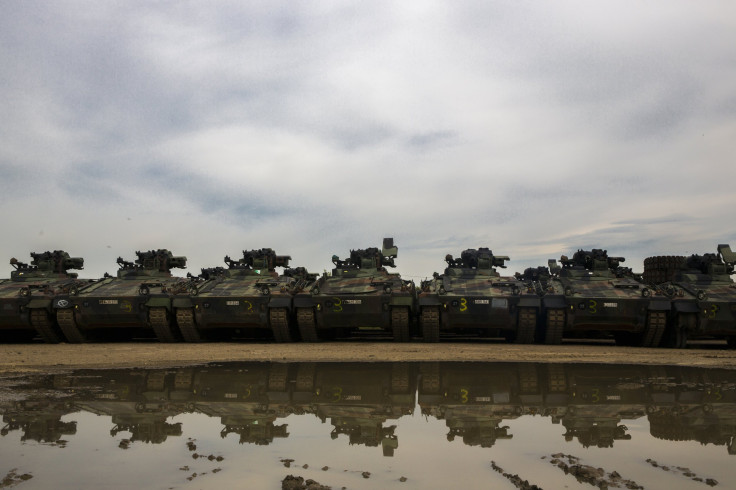Germany Tanks: Amid Ukraine Crisis, German Army To Resurrect 100 Cold War-Era War Machines

The German army plans to resurrect more than 100 inoperative tanks, a move it says will ensure that its troops are ready to respond to the escalating Ukraine crisis at the flip of a switch. The military will pay the defense ministry 22 million euros ($23.6 million) to take the tanks out of storage and modernize them beginning in 2017, the Associated Press reported.
In the wake of the Cold War, Germany’s active tank fleet dropped from 3,500 armored vehicles to just 225. "The ministry has decided to raise the upper limit for the future to 328," a defense ministry spokesman said during a news conference on Friday, Reuters reported.
Because of Germany’s shrunken tank fleet, different units are often forced to share heavy equipment, which can be a tedious process. The military hopes troops will be able to respond to situations quicker if they don’t have to constantly swap around tanks. "This can only succeed if the equipment does not need to be first moved around through the country,” the spokesman said.
In March 2014, on the heels of the Ukrainian revolution, Russia annexed the Ukrainian territory of Crimea, a move that was widely criticized as a violation of the 1994 Budapest Memorandum, in which the five permanent members of the U.N. Security Council -- Britain, China, France, Russia and the United States -- guaranteed the territorial integrity of Ukraine in exchange for the country giving up its nuclear weapons stockpile. The event tipped off months of fighting between Russian and Ukrainian forces.
Russia’s aggression in Ukraine has sent chills through the region, reflecting a restlessness not felt since the Cold War. The U.S. has stepped up its military presence in several Baltic countries in response to Russia’s increased presence there. "Russia is threatening nearly everybody; it is their way," U.S. Rep. Mac Thornberry, R-Texas, chairman of the House Armed Services Committee, said during a recent visit to Lithuania. "They want to intimidate the Baltic states, Poland, Ukraine and Romania, country after country. And the question is, do you let the bully get away with that or do you stand up and say 'no, you can threaten, but we will not allow you to run over us.’"
© Copyright IBTimes 2024. All rights reserved.












